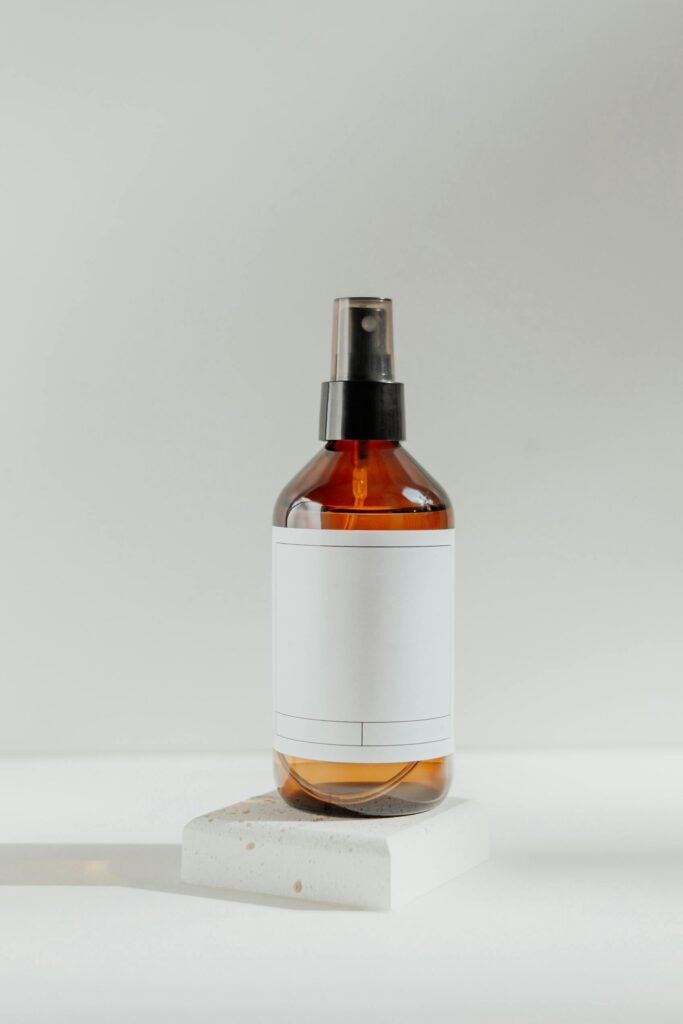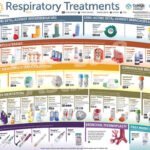
If you or someone you know relies on respiratory medications, it’s important to understand the best practices to optimize their effectiveness. Whether it’s inhalers, nebulizers, or any other form, knowing how to properly use and store these medications can make a significant difference in managing respiratory conditions. In this article, we will explore key guidelines and tips to ensure you are getting the most out of your respiratory medications, helping you breathe easier and live a healthier life.

Choosing the Right Medication
When it comes to choosing the right medication for respiratory conditions, it’s crucial to consider the patient’s specific condition and symptoms. Each respiratory condition may require a different type of medication, so it’s essential to consult with a healthcare provider to determine the most appropriate option. The healthcare provider will evaluate the patient’s symptoms, medical history, and any other underlying conditions to make an informed decision.
Consider the Patient’s Condition and Symptoms
Respiratory conditions can vary widely, from asthma to chronic bronchitis or COPD (Chronic Obstructive Pulmonary Disease). Each condition presents unique symptoms, so it’s essential to take them into account when choosing the right medication. For example, if a patient experiences shortness of breath, a bronchodilator may be recommended to help relax and open the airways. On the other hand, if a patient frequently coughs and produces excess mucus, an inhaler with a corticosteroid could be more appropriate for managing inflammation.
Consult with a Healthcare Provider
Choosing the right medication should never be done independently without the guidance of a healthcare provider. They have the necessary knowledge and expertise to assess a patient’s condition accurately and recommend the most suitable medication. By consulting with a healthcare provider, patients can ensure that their medication aligns with their specific needs and helps manage their respiratory condition effectively.
Read and Understand the Medication’s Label and Instructions
Once a healthcare provider has prescribed a medication, it is crucial to carefully read and understand the label and instructions before using it. The label provides essential information regarding the medication’s dosage, frequency, and any specific instructions for administration. By thoroughly understanding the medication, patients can ensure they are using it correctly and optimizing its effectiveness.
Proper Inhaler Technique
For individuals using inhalers to manage their respiratory conditions, proper inhaler technique is of utmost importance. Using an inhaler incorrectly may result in inadequate medication delivery and reduced effectiveness. By understanding the different types of inhalers and using them correctly, patients can maximize the benefits of their respiratory medications.
Understand the Different Types of Inhalers
There are several types of inhalers available for respiratory medication administration. The most common types include pressurized metered-dose inhalers (MDIs), dry powder inhalers (DPIs), and soft mist inhalers. Each inhaler type operates differently, so it is essential to understand how to use the specific inhaler prescribed by the healthcare provider. It may be helpful to ask for a demonstration or seek guidance from a healthcare professional to ensure the correct technique is followed.
Use the Inhaler Correctly
Proper inhaler technique involves several steps that need to be followed precisely. First, it’s important to shake the inhaler before each use, as this ensures that the medication is properly mixed. Then, one should exhale fully, making sure to remove as much air from the lungs as possible. Next, the mouth should be sealed around the mouthpiece of the inhaler, and a deep breath should be taken while simultaneously pressing down on the canister to release the medication. The breath should then be held for a few seconds before exhaling slowly. Following these steps correctly ensures that the medication reaches the lungs effectively and provides optimal relief.
Check Inhaler Technique Regularly
Even once a patient has learned the correct inhaler technique, it is essential to periodically check and verify that it is being done correctly. Over time, individuals may develop habits or unintentionally deviate from the proper technique. Regularly checking the inhaler technique either during healthcare provider visits or when encountering any issues can help identify and correct any errors. Ensuring the correct technique is maintained guarantees that the medication’s benefits are maximized.
Optimal Timing and Frequency
Proper timing and frequency of medication administration are crucial for managing respiratory conditions effectively. Following the prescribed dosage schedule, avoiding skipping doses, and discussing any adjustments with a healthcare provider are key aspects of optimizing the medication’s effectiveness.
Follow the Prescribed Dosage Schedule
A healthcare provider prescribes a specific dosage schedule based on the patient’s condition and needs. Adhering to this schedule is important to ensure a consistent level of medication in the body, which can help prevent symptoms from worsening. It is essential to take the medication at the scheduled times and not to deviate from the prescribed dosage unless instructed by a healthcare provider.
Avoid Skipping Doses
Skipping doses of respiratory medications can lead to a decline in symptom control and may increase the risk of exacerbations. It is crucial to take medications as prescribed, even if symptoms seem to be under control. If a patient experiences difficulty with adherence, they should discuss this with their healthcare provider, who can provide solutions or alternative strategies to assist in maintaining a consistent medication routine.
Discuss Possible Adjustments with a Healthcare Provider
Occasionally, adjustments to a medication’s timing or frequency may be necessary. If a patient experiences changes in symptoms or lifestyle that may impact their medication’s effectiveness, they should consult with their healthcare provider. The healthcare provider can evaluate the situation and determine if any adjustments are needed to optimize the medication’s benefits.
Maintaining Medication Equipment
Proper maintenance of medication equipment, such as inhalers and spacers, is crucial to ensure their effectiveness and longevity. By cleaning and storing inhalers correctly, replacing them as needed, and keeping track of expiration dates, patients can maintain the quality of their respiratory medication equipment.
Clean and Store Inhalers Properly
Regular cleaning of inhalers helps prevent build-up and ensures proper functioning. Cleaning instructions can typically be found in the medication package insert or provided by the healthcare provider. Proper storage is also important to protect the medication from extreme temperatures and moisture that could potentially degrade its effectiveness. Understanding and following the cleaning and storage guidelines provided by the manufacturer or healthcare provider helps maintain the inhaler’s integrity.
Replace Inhaler and Spacer as Needed
Over time, inhalers and spacers may experience wear and tear, which can affect their efficiency. It is important to regularly inspect one’s inhaler and spacer, looking for signs of damage or malfunction. If any issues are observed or if the inhaler is reaching the end of its intended lifespan, it should be replaced promptly. Regularly replacing inhalers and spacers ensures that the patient is receiving the proper amount of medication and increases the likelihood of optimal asthma control.
Keep Track of Expiration Dates
Medication expiration dates indicate the period during which the medication is likely to remain potent and safe to use. Using expired medications can reduce their effectiveness or potentially cause harm. Patients should ensure they are aware of the expiration date of their respiratory medications and discard any that have expired. Keeping track of expiration dates and replacing medications as needed helps maintain the highest level of safety and efficacy.

Managing Side Effects
Like any medication, respiratory medications can have potential side effects. Being aware of these side effects, reporting any adverse reactions to a healthcare provider, and discussing possible alternative medications or treatment options can help manage side effects effectively.
Be Aware of Potential Side Effects
Different respiratory medications have specific side effects that patients should be aware of. Common side effects may include dry mouth, headaches, muscle tremors, or increased heart rate. These side effects can vary from person to person, and it is important to discuss any concerns or experiences with a healthcare provider. By being aware of potential side effects, patients can monitor their symptoms and determine if any action needs to be taken.
Report any Adverse Reactions to a Healthcare Provider
If a patient experiences any adverse reactions or unexpected symptoms after starting a new respiratory medication, it is essential to report these observations to a healthcare provider promptly. Adverse reactions can vary in severity, and early detection and intervention are key to resolving any issues. Open communication with a healthcare provider allows for appropriate assessment and adjustment of medications if necessary.
Discuss Alternative Medications or Treatment Options
In some cases, certain respiratory medications may not be well-tolerated or may not effectively manage symptoms for every patient. If a patient experiences persistent side effects or inadequate symptom control, it is important to discuss these issues with a healthcare provider. They can explore alternative medications or treatment options that may better suit the patient’s needs.
Monitoring and Evaluation
Regularly monitoring the effectiveness of respiratory medications is crucial to managing respiratory conditions optimally. This involves assessing symptoms, tracking lung function, and attending follow-up appointments with a healthcare provider.
Regularly Assess the Effectiveness of the Medication
Monitoring the effectiveness of a respiratory medication involves paying attention to symptoms and how well they are controlled. Patients should routinely evaluate whether their medication is effectively managing their symptoms or if adjustments may be needed. It is important to discuss any changes or concerns with a healthcare provider during regular check-ups or follow-up appointments.
Track Symptoms and Lung Function
Keeping a record of respiratory symptoms and lung function can provide valuable information regarding the effectiveness of a medication over time. Tracking symptoms such as shortness of breath, coughing, wheezing, and the need for rescue medication allows patients and healthcare providers to identify patterns and make informed decisions about treatment.
Attend Follow-up Appointments with a Healthcare Provider
Regular follow-up appointments with a healthcare provider are essential to assess the ongoing management of a respiratory condition. These appointments provide an opportunity to discuss any concerns, address medication effectiveness, inquire about potential adjustments, and stay up to date with any new developments in treatment options.

Avoiding Common Mistakes
Certain common mistakes can hinder the effectiveness of respiratory medications. By ensuring proper hand hygiene, avoiding the use of expired medications, and refraining from sharing inhalers with others, patients can optimize their medication experience.
Not Using Proper Hand-hygiene before Medication Administration
Proper hand hygiene is crucial to prevent contamination and ensure medication safety. Before using any respiratory medication, it is important to thoroughly wash hands with soap and water or use an alcohol-based hand sanitizer to eliminate any potential sources of bacteria or viruses. This simple practice helps reduce the risk of infections or other complications.
Using Expired Medications
Using expired medications can lead to reduced efficacy and may even pose health risks. Patients should always check the expiration dates on their respiratory medications and avoid using any that have expired. It is important to properly dispose of expired medications as recommended by local guidelines or consult a healthcare provider or pharmacist for guidance.
Sharing Inhalers with Others
Sharing inhalers with others, even in emergency situations, should be avoided. Each individual’s respiratory condition and medication requirements are unique, and using someone else’s inhaler can have adverse effects. It is important to have a personalized treatment plan in place and ensure that each individual has their own prescribed medication.
Managing Medication Costs
The cost of respiratory medications can be a concern for some individuals. Exploring insurance coverage and discount programs, asking about generic options and cost-saving strategies, and discussing any financial concerns with a healthcare provider can help manage medication costs more effectively.
Explore Insurance Coverage and Discount Programs
Many insurance plans provide coverage for respiratory medications, but it is important to understand the details of the coverage offered. Patients should review their insurance policy or contact their insurance provider to determine the extent of coverage for their specific medications. Additionally, discount programs or patient assistance programs may be available to help individuals with medication costs. Researching and taking advantage of these programs can significantly reduce out-of-pocket expenses.
Ask about Generic Options and Cost-saving Strategies
Inquiring about generic options and cost-saving strategies is another way to manage medication costs. Generic medications often offer the same active ingredients as their brand-name counterparts but at a lower cost. Shopping around at different pharmacies and comparing prices can also help uncover potential cost-saving opportunities.
Discuss Financial Concerns with a Healthcare Provider
If individuals experience financial difficulties in affording their respiratory medications, it is important to discuss these concerns with a healthcare provider openly. Healthcare providers are experienced in navigating such situations and may be able to provide guidance, recommend alternative medications, or help connect patients with resources that can assist in managing medication costs.
Engaging in Lifestyle Modifications
In addition to the use of respiratory medications, engaging in certain lifestyle modifications can significantly improve respiratory health. Quitting smoking, avoiding triggering substances, and implementing a healthy diet and regular exercise routine can all contribute to better respiratory outcomes.
Quitting Smoking
Quitting smoking is one of the most important steps individuals can take to improve their respiratory health. Smoking damages the lungs and exacerbates respiratory conditions. Healthcare providers can provide evidence-based strategies and resources to support individuals in their journey to quit smoking, including medications, counseling, and support groups.
Avoiding Triggering Substances
Identifying and avoiding triggering substances is another crucial lifestyle modification for individuals with respiratory conditions. Common triggers include allergens like pollen, pet dander, or dust mites, as well as irritants like air pollution or strong scents. By minimizing exposure to these substances, individuals can reduce the frequency and severity of respiratory symptoms.
Implementing a Healthy Diet and Regular Exercise Routine
Maintaining a healthy diet and regular exercise routine can positively impact respiratory health. A diet rich in fruits, vegetables, whole grains, and lean proteins provides essential nutrients that support lung function and overall well-being. Regular exercise helps strengthen the respiratory muscles, improves lung capacity, and enhances overall cardiovascular health. Consultation with a healthcare provider or a registered dietitian can help develop personalized dietary and exercise plans.
Educating Patients and Caregivers
Education plays a vital role in ensuring the safe and effective use of respiratory medications. Providing clear instructions on medication use, explaining possible side effects and action plans, and ensuring understanding of emergency procedures are essential components of patient and caregiver education.
Provide Clear Instructions on Medication Use
Healthcare providers should provide clear and comprehensive instructions on how to use respiratory medications. These instructions may include proper inhaler technique, timing, frequency, and any necessary precautions. It is important to address any questions or concerns patients or caregivers may have and provide additional resources, such as written instructions or educational materials, for reference.
Explain Possible Side Effects and Action Plans
Healthcare providers should also inform patients and caregivers about the potential side effects of respiratory medications. By explaining possible side effects, individuals can be better prepared to manage them if they occur. Additionally, healthcare providers should discuss action plans for addressing side effects or exacerbations of symptoms and outline when and how to seek medical assistance.
Ensure Understanding of Emergency Procedures
In the event of an acute respiratory emergency or exacerbation, it is crucial that patients and caregivers understand the appropriate emergency procedures. Healthcare providers should review and reinforce these procedures, including the correct use of rescue medications or inhalers and when to seek emergency medical attention. Having a clear understanding of emergency procedures can help individuals and caregivers respond effectively during critical situations.
By following these best practices for respiratory medications, individuals can optimize their treatment and better manage their respiratory conditions. It’s important to remember that open communication with healthcare providers, adherence to medication schedules, and engagement in lifestyle modifications are all key factors in achieving optimal respiratory health.









